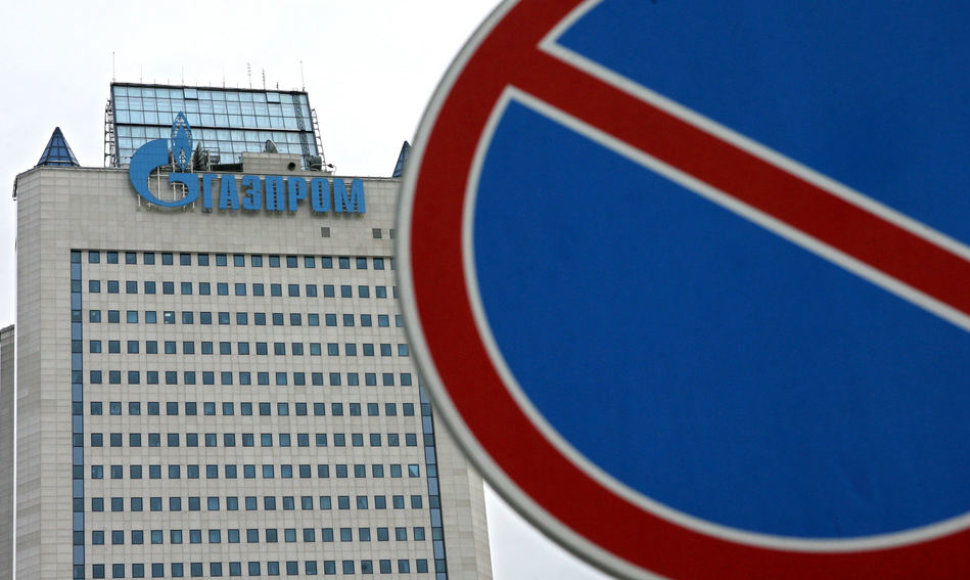"Lithuania is not a major European state, while Gazprom is a big opponent. We would hardly be able to win such cases on our own. But the European Commission (EC) is also investigating the pricing policy and the use of its monopolist position. No doubt, there will be some results in the context of this probe, because the EC has never lost such a case, even against Bill Gates," he told the Žinių Radijas radio station when asked to comment on Lithuania's suit of around 5 billion litas (EUR 1.45b) against Gazprom.
The lawmaker predicts that the EU executive body will conclude an amicable agreement with the Russian supplier.
"From what I am hearing and reading now, especially (EU Energy Commissioner Guenther) Oettinger's latest statement, I understand that this may result in some compromise agreement. Gazprom will probably pay certain amounts of money and revise its pricing policy. Lithuania may win in this context," he said.
On the other hand, the deputy speaker noted that arbitration proceedings take time.
"It may take a couple of years," he said.
Angry pitbull
Lithuania's Foreign Minister Audronius Ažubalis, too, believes that the EC action against Gazprom will be successful.
"I do believe that the European Commission's investigation into the Russian energy monopoly flagship Gazprom's activities will be successful, because, as far as I know, the European Commission wouldn't launch such a probe unless it is confident that there is sufficiently serious evidence," Ažubalis said during an energy conference in Vilnius on Wednesday.
"I think that it is very important that the European Union has paid attention to what Lithuania's representatives have been saying for several years, that is, that EU (member) states cannot be discriminated by artificially raising the price for some countries and lowering it for others," he said.
Ažubalis told BNS later in the day that when he spoke about a successful probe, he had in mind that all anti-trust probes carried out by the European Commission so far "have been well-prepared for, with sufficient evidence available, and, most importantly, deeply professional and not politicized."
The minister would not predict what outcome the Commission's probe into Gazprom's activities could have.
"It's difficult for me to say anything about that. We have to wait and see. Some companies wait until the end, are given a fine and pay it if they want to stay in the market. Other companies look for other ways," he said.
The job of EU bodies that are investigating anti-trust violations is like that of an angry dog, Ažubalis said.
"We may say that EU institutions are sluggish and bureaucratic monsters, but sometimes I would compare them to a small, perhaps not very good-looking pit bull that won't let go once he's got a hold on something. What I have in mind here is the practice of EU institutions' long-standing fight against market distortions due to monopolist decisions," he said.
Lithuania recently filed a suit against Gazprom at the Stockholm arbitration tribunal demanding 5 billion litas in compensation for having overpaid for Russian natural gas in 2004 to 2012 due to unfair pricing.
The gas price formula has been revised five times since 2005, eventually tying it to soaring oil product prices in the world's markets. Lithuania wants the gas price to be linked to biofuel prices.
The European Commission is meanwhile carrying out a separate investigation into Gazprom's operations in Central and Eastern Europe. Among other things, it suspects that the supplier could have imposed unfair prices on its customers by linking the cost of gas to oil prices. The Lithuanian government has filed a complaint to the EU's executive body over possible unfair pricing and abuse of market dominance by Gazprom.
Lithuania, which currently pays the highest price for Gazprom's natural gas in the EU, thinks that the Russian supplier applies discriminatory prices to the country, which is the first Baltic state that is implementing the EU's third energy package and aims to unbundle the assets of Lietuvos Dujos.
Energy Minister Arvydas Sekmokas has said that Gazprom's gas price to Lithuania has increased six-fold, to 497 US dollars per 1,000 cubic meters in 2012, from 84 dollars in 2004.












